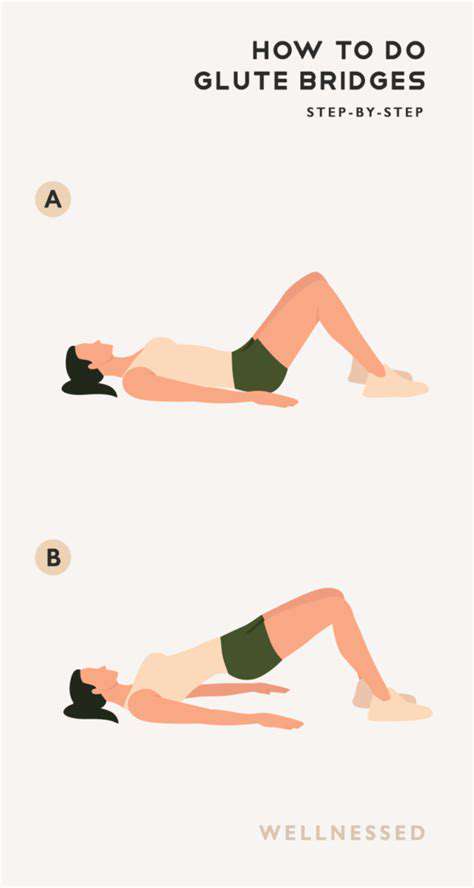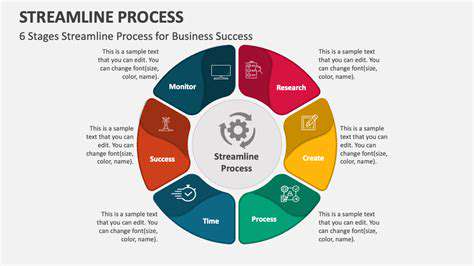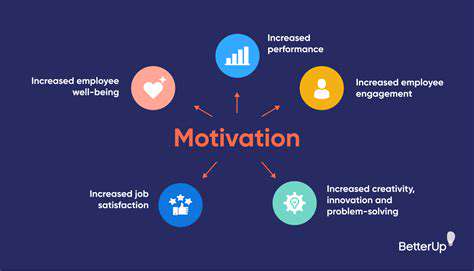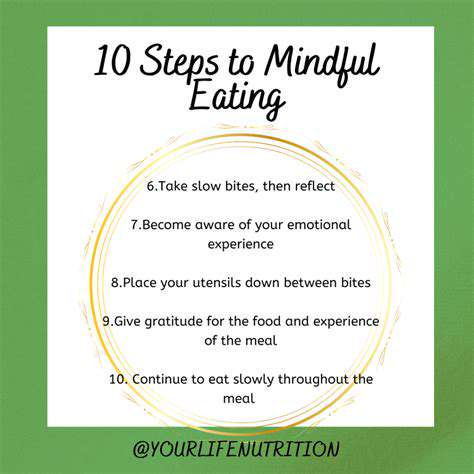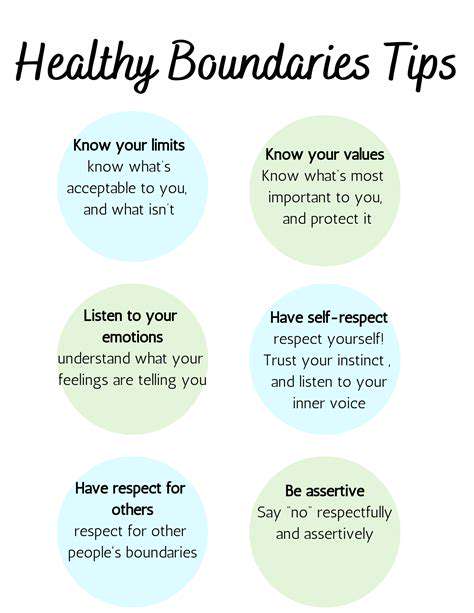How to Cope with Exam Stress and Anxiety
Developing Healthy Coping Mechanisms
Understanding Exam Stress
Exam stress is a common experience for students of all ages, and it's crucial to recognize that it's a normal response to pressure. Understanding that this stress is a natural part of the process can help you feel less overwhelmed and more capable of managing it. Recognizing the specific triggers of your exam stress, whether it's the pressure to perform well, the feeling of not knowing enough material, or the fear of failure, can pave the way for more effective coping strategies.
Identifying the source of your stress allows you to target your coping mechanisms more effectively. For example, if the pressure to succeed is a major contributor, focusing on past successes and building confidence can be beneficial. If the fear of not knowing enough material is the problem, setting a realistic study schedule and seeking help from teachers or tutors can be important steps in managing this stressor.
Identifying Your Stress Response
Everyone reacts to stress differently. Some people experience physical symptoms like headaches or stomach aches, while others might feel anxious or irritable. Understanding your personal stress response is critical to developing effective coping mechanisms. Paying attention to your body's signals—whether it's increased heart rate, muscle tension, or difficulty sleeping—is a crucial first step. By acknowledging these reactions, you can better recognize when you're under stress and implement strategies to manage it.
Recognizing your personal stress response is a crucial first step towards developing healthy coping mechanisms. For example, if you tend to withdraw when stressed, you might need to proactively seek social support. If you tend to overthink, scheduling specific time for worry and reflection can be helpful. This self-awareness allows you to tailor your coping strategies to your unique needs and triggers.
Time Management and Organization
Effective time management is often a key component in reducing exam stress. Creating a realistic study schedule that incorporates breaks and dedicated time for different subjects is essential. Breaking down large tasks into smaller, more manageable chunks can make the study process less daunting and more sustainable. This approach allows for better focus and prevents feeling overwhelmed by the sheer volume of material.
Organizing your study materials can also significantly reduce stress. Creating a dedicated study space, keeping your notes and textbooks well-organized, and utilizing tools like flashcards or mind maps can help you stay focused and efficient during study sessions. This organization contributes to a sense of control and reduces the feeling of being lost in the material.
Healthy Lifestyle Habits
Maintaining a healthy lifestyle is crucial for managing stress. Regular exercise, a balanced diet, and sufficient sleep can significantly impact your ability to cope with exam pressure. Exercise releases endorphins that have mood-boosting effects, and a nutritious diet provides the energy needed for studying and coping with stress.
Prioritizing sufficient sleep is vital. Adequate rest allows your brain to process information effectively, improves concentration, and reduces irritability. A consistent sleep schedule is key to regulating your body's natural sleep-wake cycle, further contributing to your overall well-being and your ability to handle exam stress.
Seeking Support and Resources
Don't hesitate to reach out for support when you're feeling overwhelmed. Talking to a trusted friend, family member, teacher, or counselor can provide a different perspective and help you feel less alone. Utilizing available campus resources, such as tutoring services or counseling centers, can provide valuable support and strategies for managing stress.
Identifying and utilizing available resources is crucial. Talking to a trusted friend, family member, teacher, or counselor can provide valuable support and strategies for managing stress. Making use of tutoring services, counseling centers, or other campus resources can provide targeted assistance and alleviate feelings of isolation.
Relaxation Techniques and Mindfulness
Incorporating relaxation techniques, such as deep breathing exercises or progressive muscle relaxation, can help manage anxiety and promote a sense of calm. Mindfulness practices, which focus on being present in the moment, can also be effective in reducing stress and improving focus. These techniques can help you develop coping mechanisms that you can use when you're feeling stressed during exams.
Practicing mindfulness and relaxation techniques can be incredibly valuable in managing exam stress. These practices can help you focus on the present moment, reduce racing thoughts, and promote a sense of calm. Regular practice of these techniques can equip you with valuable tools for managing stress and maintaining a healthy perspective during challenging times.
Effective Study Strategies to Reduce Exam Pressure
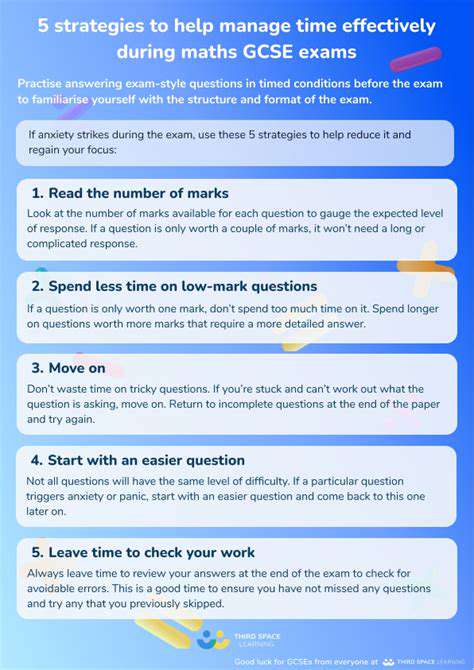
Prioritizing Your Study Environment
Creating a dedicated study space is crucial for maximizing focus and concentration. This dedicated area should be free from distractions, such as noisy roommates, televisions, or social media notifications. A quiet, well-lit space fosters a more conducive learning environment, enabling you to immerse yourself in your studies without unnecessary interruptions. Consider using noise-canceling headphones or white noise machines to further block out distracting sounds.
Furthermore, maintaining a clean and organized workspace can significantly impact your study efficiency. A cluttered desk can lead to mental clutter, making it harder to concentrate on the material. Taking a few minutes to tidy up your space before starting your study session can drastically improve your ability to focus and absorb information effectively.
Time Management and Scheduling
Developing a structured study schedule is essential for maintaining momentum and consistency in your learning process. Creating a realistic timetable that incorporates specific study blocks for different subjects or topics allows you to allocate adequate time for each task. This approach prevents last-minute cramming and promotes a more sustainable learning strategy.
Breaking down large assignments into smaller, manageable tasks can significantly reduce the feeling of overwhelm. This approach allows you to focus on one component at a time, making the task less intimidating and more approachable. Regular check-ins with your schedule will help you stay on track and avoid procrastination.
Active Recall and Spaced Repetition
Active recall, a technique where you actively retrieve information from your memory rather than passively rereading it, is a highly effective study method. This method strengthens your memory and deepens your understanding of the material. By testing yourself frequently, you identify areas where you need further review and solidify your knowledge.
Utilizing Effective Note-Taking Strategies
Developing effective note-taking skills can greatly enhance your learning experience. Employing methods like the Cornell note-taking system or the mind-mapping technique can help you organize information in a structured manner, making it easier to review and retain. This approach also promotes active engagement with the material, enhancing comprehension and knowledge retention.
Using abbreviations and symbols in your notes can also help you condense information and save time. A consistent system of abbreviations and symbols will help streamline your note-taking process and make reviewing your notes more efficient. This also enables you to quickly grasp the key points during your review sessions.
Employing Various Learning Resources
Don't limit yourself to just textbooks or lectures. Exploring diverse learning resources such as online courses, documentaries, and interactive simulations can broaden your understanding and make learning more engaging. This diverse approach can provide different perspectives on the subject matter, enriching your understanding and retention.
Utilizing online study groups or forums can be valuable for discussing concepts, clarifying doubts, and gaining different viewpoints. This collaborative learning environment can provide insights and support that textbooks or lectures alone might miss. Moreover, it fosters a sense of community and support, making the learning journey more enjoyable.
Seeking Support and Maintaining Motivation
Don't hesitate to seek help from professors, tutors, or classmates if you're struggling with a particular concept. Seeking external support can be invaluable in overcoming challenges and solidifying your understanding. This proactive approach fosters a strong foundation for academic success.
Maintaining a positive attitude and staying motivated throughout the learning process is equally important. Regular breaks, rewarding yourself for achieving milestones, and focusing on your personal goals can help you stay motivated and engaged in your studies. A positive mindset can significantly impact your overall learning experience and academic performance.

Read more about How to Cope with Exam Stress and Anxiety
Hot Recommendations
-
*Guide to Managing Gout Through Diet
-
*Best Habits for Financial Well being
-
*How to Build a Routine for Better Mental Health
-
*How to Eat Healthy on a Budget [Tips & Meal Ideas]
-
*Guide to Practicing Self Acceptance
-
*How to Incorporate More Movement Into Your Day
-
*Guide to Managing Chronic Pain Naturally
-
*Guide to Building a Reading Habit for Well being
-
*Top 5 Weight Loss Supplements That Actually Work
-
*Best Exercises for Postpartum Recovery [Beyond Abdominal Work]

